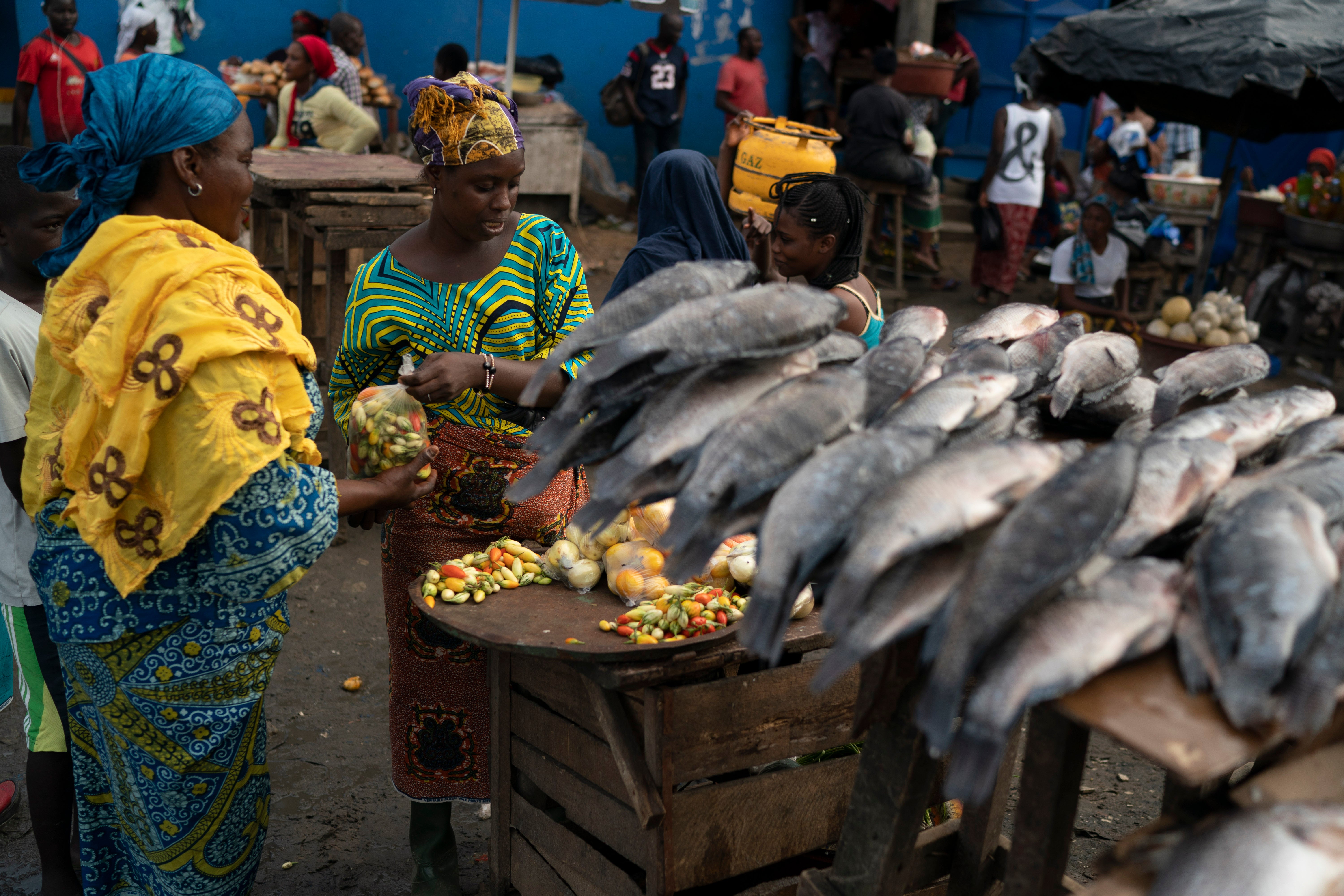Ivorians brace for unrest, await results in tense elections
Ivorians are bracing for the possibility of more unrest as election officials tallied votes

Your support helps us to tell the story
From reproductive rights to climate change to Big Tech, The Independent is on the ground when the story is developing. Whether it's investigating the financials of Elon Musk's pro-Trump PAC or producing our latest documentary, 'The A Word', which shines a light on the American women fighting for reproductive rights, we know how important it is to parse out the facts from the messaging.
At such a critical moment in US history, we need reporters on the ground. Your donation allows us to keep sending journalists to speak to both sides of the story.
The Independent is trusted by Americans across the entire political spectrum. And unlike many other quality news outlets, we choose not to lock Americans out of our reporting and analysis with paywalls. We believe quality journalism should be available to everyone, paid for by those who can afford it.
Your support makes all the difference.Ivorians braced for more unrest Sunday as election officials tallied votes and opponents of President Alassane Ouattara stepped up their criticism of his quest for a third term.
Opposition leaders who boycotted the vote have claimed that at least a dozen people died in violence related to Saturday's election, without giving details. More than 20 others had been killed in the run-up to the vote, human rights groups said.
On Sunday, prominent dissident Guillaume Soro said from exile in France that he no longer considered Ouattara to be Ivory Coast's head of state after the government went ahead with elections even after the two main competitors dropped out. Soro, a former prime minister and president of Ivory Coast's National Assembly, had been disqualified from running in Saturday's election earlier this year.
“Faced with the electoral parody in Ivory Coast, (the GPS party) calls on the Ivorian people to remove former president Alassane Ouattara from power,” Soro tweeted from exile in France. “Ivory Coast will assume its destiny and the impostor will fall.”
There was no immediate reaction from Ouattara, who was re-elected five years ago with nearly 84% of the vote and has broad international support.
Soro's comments about his former mentor came as some Ivorians feared a possible return to the electoral violence that had engulfed the country nearly a decade ago. The 2010 election standoff led to months of fighting that left more than 3,000 people dead after then-President Laurent Gbagbo refused to concede defeat to Ouattara, the internationally recognized winner.
Ouattara is now seeking a third term in office, which his opponents consider illegal. However, the president insists his previous two terms no longer count because of a constitutional referendum approved in 2016. Tensions over his bid for another term have revived old wounds from the country's previous political standoff, with critics complaining the Ouattara administration has failed to bring about national reconciliation during his years in power.
Critics say Ouattara has all but predetermined the outcome as 40 of the 44 candidates seeking to challenge him were disqualified, including Soro and Gbagbo. Two of his three remaining opponents — Pascal Affi N’Guessan and Henri Konan Bedie — boycotted Saturday's vote and asked their supporters to stay home too.
N'Guessan told reporters late Saturday that at least a dozen people had died in violence linked to the election, which he described as an “electoral coup d'etat.” More than 20 others already had died in the run-up to the vote, according to human rights groups.
In the streets of Abidjan, there was uncertainty Sunday about what the coming days would bring and whether the release of even partial election results could set off more unrest.
Moussa Doumbia, 67, said residents in the Abobo neighborhood of Abidjan wanted to avoid the bloody conflict of elections past.
“We no longer want hate. We want peace, so that what happened in 2010 never happens again,” he said.
While the streets in pro-opposition neighborhoods were largely deserted Sunday, markets reopened in Ouattara strongholds like Abobo where women neatly lined up piles of fresh tilapia fish to sell to shoppers trudging through muddy footpaths.
“We are afraid of what's to come,” said Aicha Toure, a vegetable seller, as she sliced cabbage at her stall. “We don't know what's going to happen.”
On Saturday, opposition activists put up barricades in many neighborhoods, and in some areas voting materials were seized from depots and burned.
Ibrahime Coulibaly-Kuibiert, president of the Independent Electoral Commission, told reporters there had been a few “minor disturbances.”
“There are barely 30 to 40 polling stations that were ransacked,” out of more than 22,000 nationwide, he said.
Ouattara called on Ivorians to halt acts of violence aimed at disrupting the vote as he cast his ballot earlier in the day in Abidjan’s Cocody neighborhood.
“Let them stop," he said. “Let them stop because Ivory Coast needs peaces”
___
Associated Press writer Toussaint N'Gotta contributed.